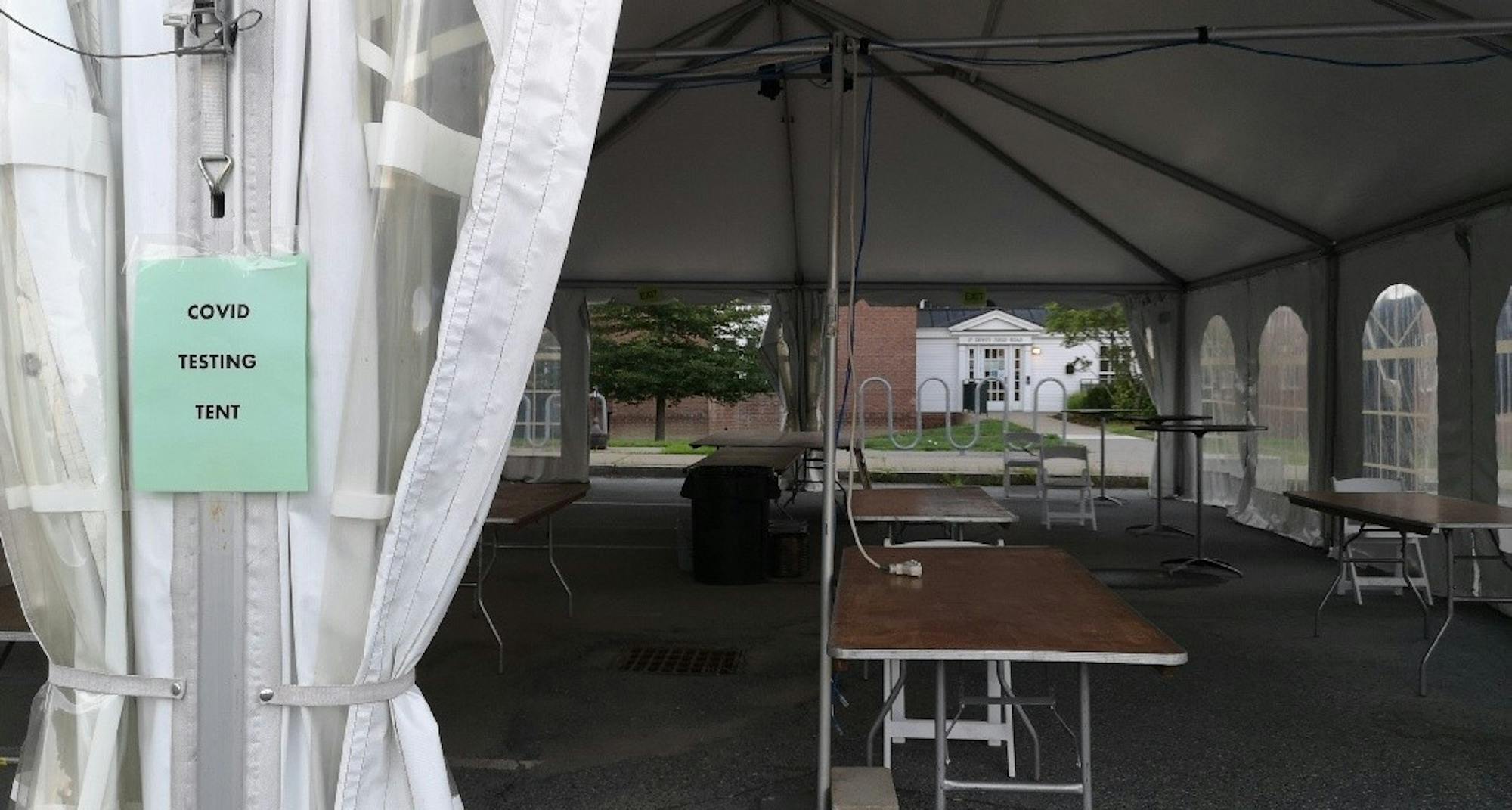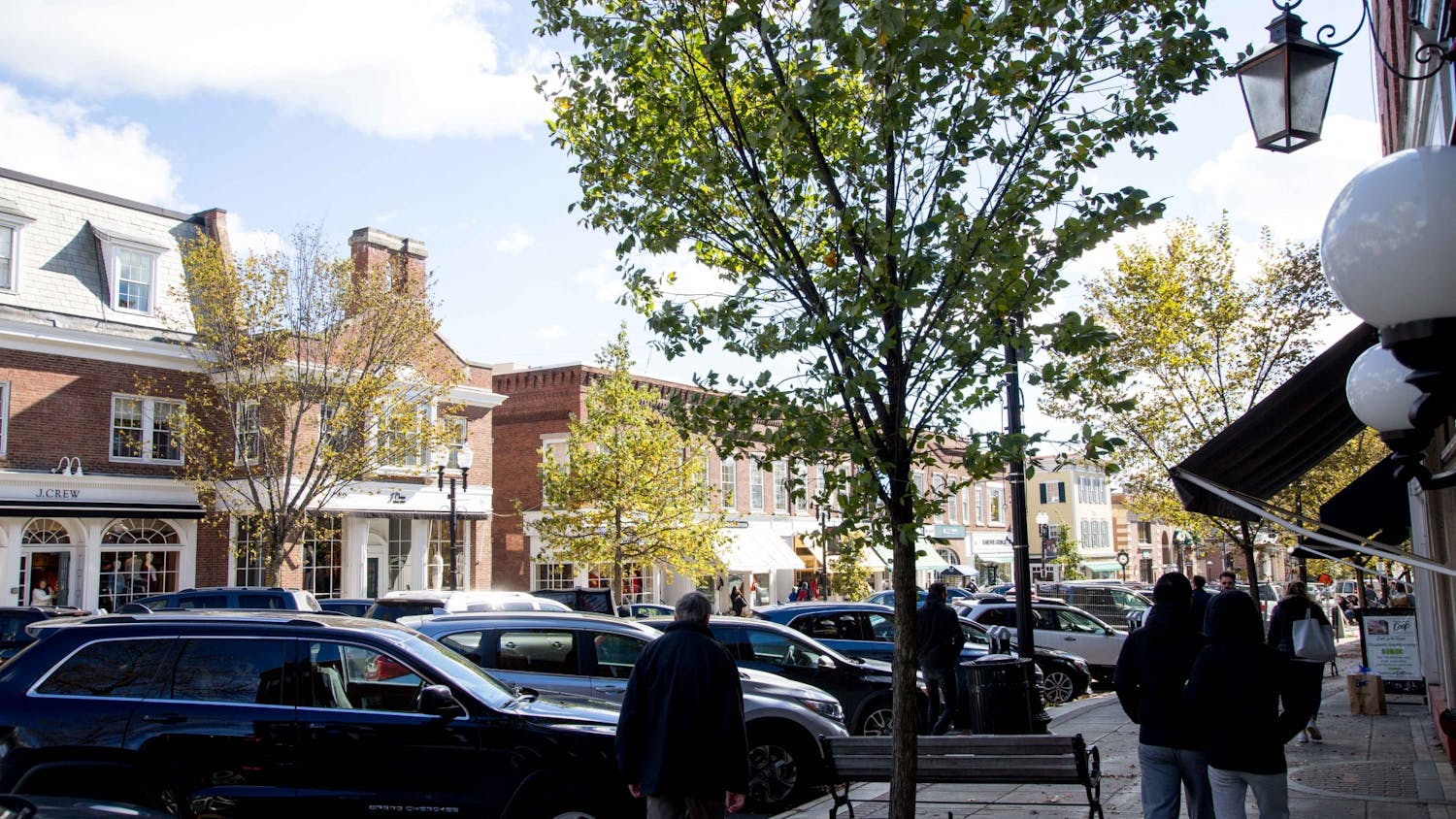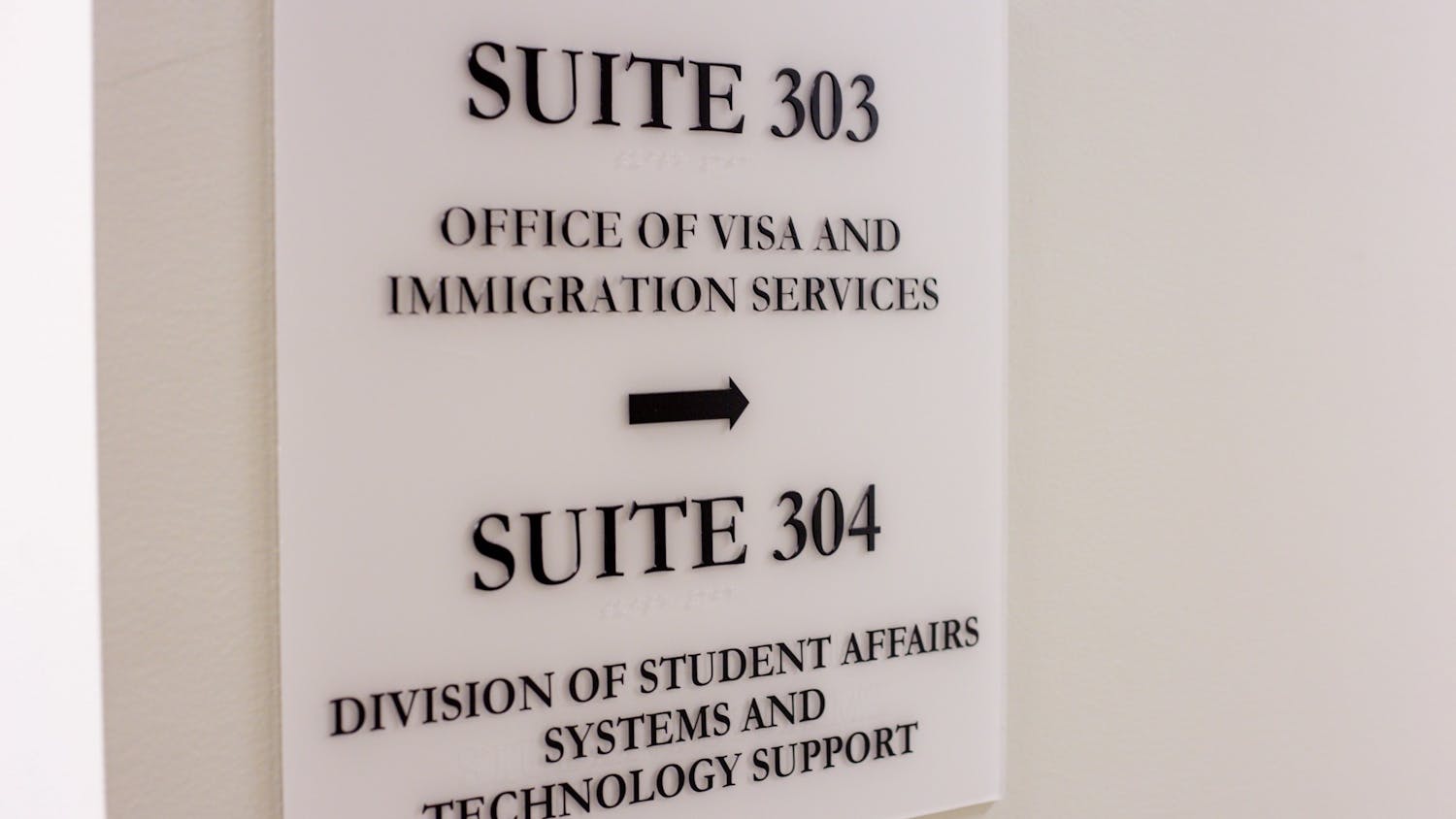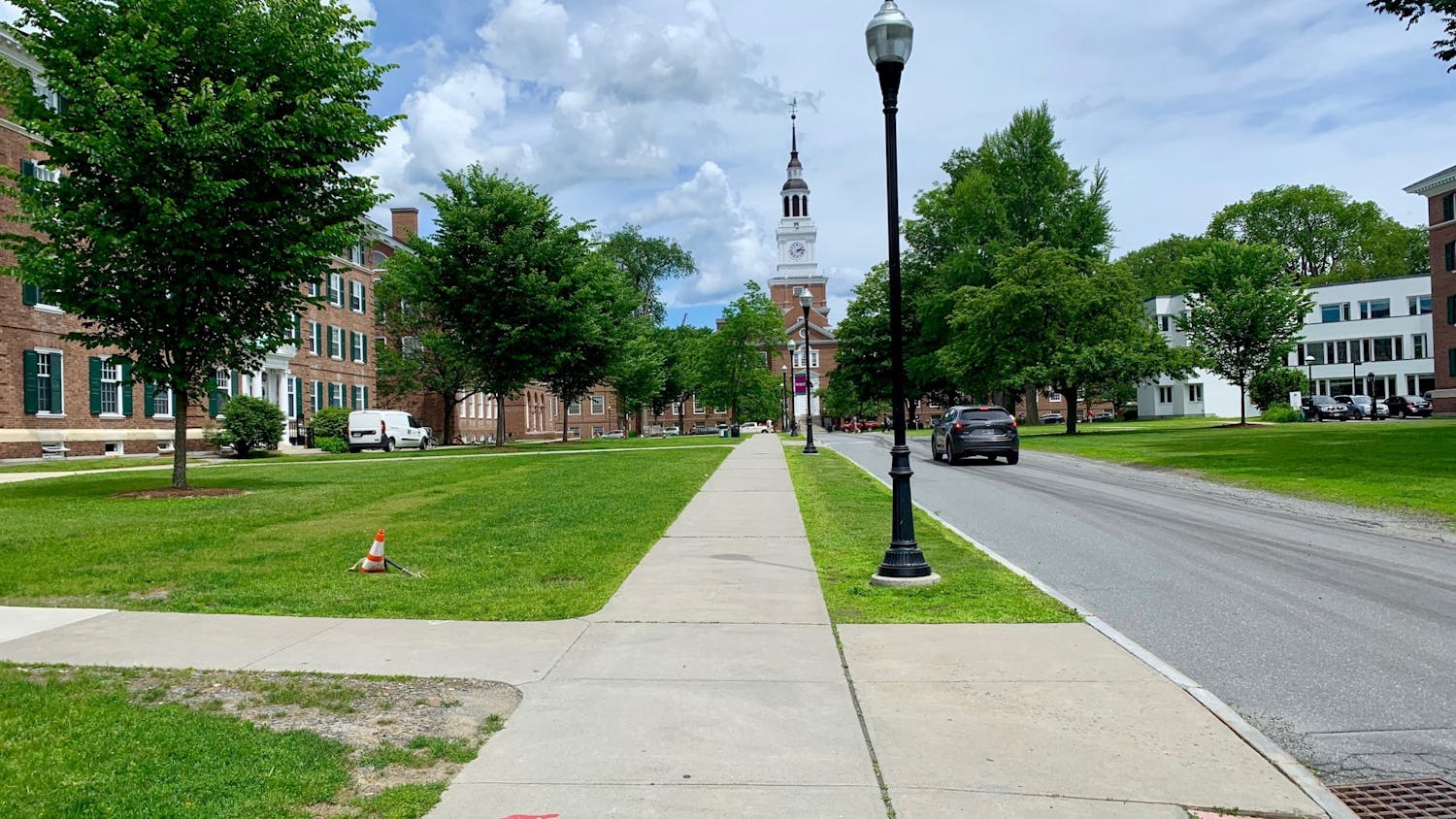The release of details regarding the arrival of students on campus and housing for the fall term will be delayed by several days as the College observes how reopening progresses on other college campuses, Provost Joseph Helble announced in Wednesday’s “Community Conversations” video stream.
Helble said that Dartmouth is considering how other universities offering in-residence programs this fall are handling COVID-19 when deciding if and how students will be returning to Hanover for the fall. The additional few days, he said, will allow the College to track the positive cases at other schools over the first two weeks of their operations.
The news comes as colleges across the country have reversed their reopening plans for the fall, some due to outbreaks of COVID-19 following students’ return to campus. The University of North Carolina-Chapel Hill moved to an all-online fall after 177 students tested positive and hundreds more were quarantined across multiple dorm buildings and a fraternity. The University of Notre Dame announced it would move online for two weeks after 146 students tested positive; Notre Dame’s president said the outbreak was linked to off-campus parties.
Additionally, four of Dartmouth’s Ivy League peers — Brown University, Columbia University, Princeton University and the University of Pennsylvania — have in recent weeks scaled back their reopening plans or gone entirely online for the fall.
Helble stressed that Dartmouth’s decisions are being informed by how other schools that are reopening are handling COVID-19, and not by schools that preemptively moved online.
“Over the past two weeks, we’ve seen some of our peer institutions change course and announce that they would move to fall-semester remote-only operations,” Helble said. “In many of those cases, there are very specific circumstances — generally state or local requirements, or, in a few cases, high local levels of community transmission in the area immediately adjacent to the campus — that led the university and university leadership to make their decision.”
The COVID-19 incidence rates of students arriving at schools with pre-arrival testing and testing upon arrival, Helble said, has ranged from 0 percent to .28 percent. This suggests that if 2,300 undergraduate students arrive on campus, between two and six would test positive, he noted, a figure that could be decreased if students are screened out through pre-arrival testing.
Over 750 returning graduate and professional students have been tested this summer, Helble said, with zero positive tests so far. This result, he suggested, means that bringing students back under the current plan is feasible, but Helble added that the College is “watching very closely” to see if levels of COVID-19 infection rise at universities that have brought students back to campus in the past two weeks.
“In at least one case so far, we have seen infection levels rise,” Helble said, “and this is data that we need to and will track, on that and other campuses, before we confirm our plan to bring undergraduate students back to Hanover this fall.”
Helble acknowledged that delaying the decision may place additional stress on students who need to make travel decisions, but said that a reversal of policy after it is announced would be even worse.
“If we found ourselves in a position where we said, ‘Here are your assignments, buy tickets, move forward,’ and then the progression of the disease on the campuses that already opened ... gives us significant pause about bringing students back,” Helble said, “that is worse in terms of anxiety and financial outlay than asking students to please give us until early next week.” There will not, he added, be delays “on an ongoing basis.”
Helble also offered more details regarding pre-arrival testing. Each domestic student, he said, will receive a test in the mail after housing information is released, and students who tested positive will be asked to remain at home for at least two additional weeks. Regardless of the results of the pre-arrival test, Helble said, students will be tested three times after arrival on campus: on day zero, day three and day seven.
Additional surveillance testing will be conducted so that “every student can expect to be tested multiple times through the course of the term,” Helble said. Additionally, Dartmouth will be partnering with Dartmouth-Hitchcock Medical Center to test wastewater from eight sewer locations on campus. Waste water testing will begin this week and continue through November 30.
“With all of this executed properly, we are fairly confident that we have a good plan to identify an increase in incidence of disease quickly and take steps to get appropriate students into isolation or get their contacts into quarantine,” Helble said.
When asked how Dartmouth’s COVID-19 community standards will be enforced, Dean of the College Kathryn Lively said during the live stream that Dartmouth does not intend to be a “police state” and instead will focus on having students and staff hold each other accountable. Community members will be able to report public health violations via the LiveSafe application, and all students, faculty and staff will receive a “bystander intervention module.”
“In the case of a pandemic, every decision, every choice, actually matters,” Lively said.
Additionally, Dartmouth will be emphasizing the use of its outdoor spaces for socially distanced small group events, including socially distanced office hours, Helble said. He said that different organizations on campus are planning different types of events — the Rockefeller Center for Public Policy, for example, may hold an outdoor watch party for the presidential election.
Lively also provided some additional details on how pre-orientation, orientation and the First Year Student Enrichment Program have been adapted to the virtual format. “Academic snapshots” have already been sent to first-year students to give them a sense of different academic programs. Some traditions on campus, like the meetings between Lively, Hanlon and first-year students as well as the twilight ceremony, will all be virtual — though Lively said that how the latter event will work virtually is a “surprise.”
Orientation will include activities run by the 200 selected Orientation Peer Leaders, and incoming students will have opportunities to attend group advising and one-on-one advising sessions, Lively said. FYSEP began virtually last week and will be occurring for four weeks instead of its typical duration of four days.
Helble also announced that the library is now open for limited hours to students, faculty and staff who are permitted to be on campus. Berry library and the Baker stacks will be open from Monday to Friday from 10 a.m. to 4p.m. Social distancing and masks are required in the library as well as elsewhere on campus, and only students with current Dartmouth IDs will have access to the library.
The next “Community Conversations” will occur in two weeks.




